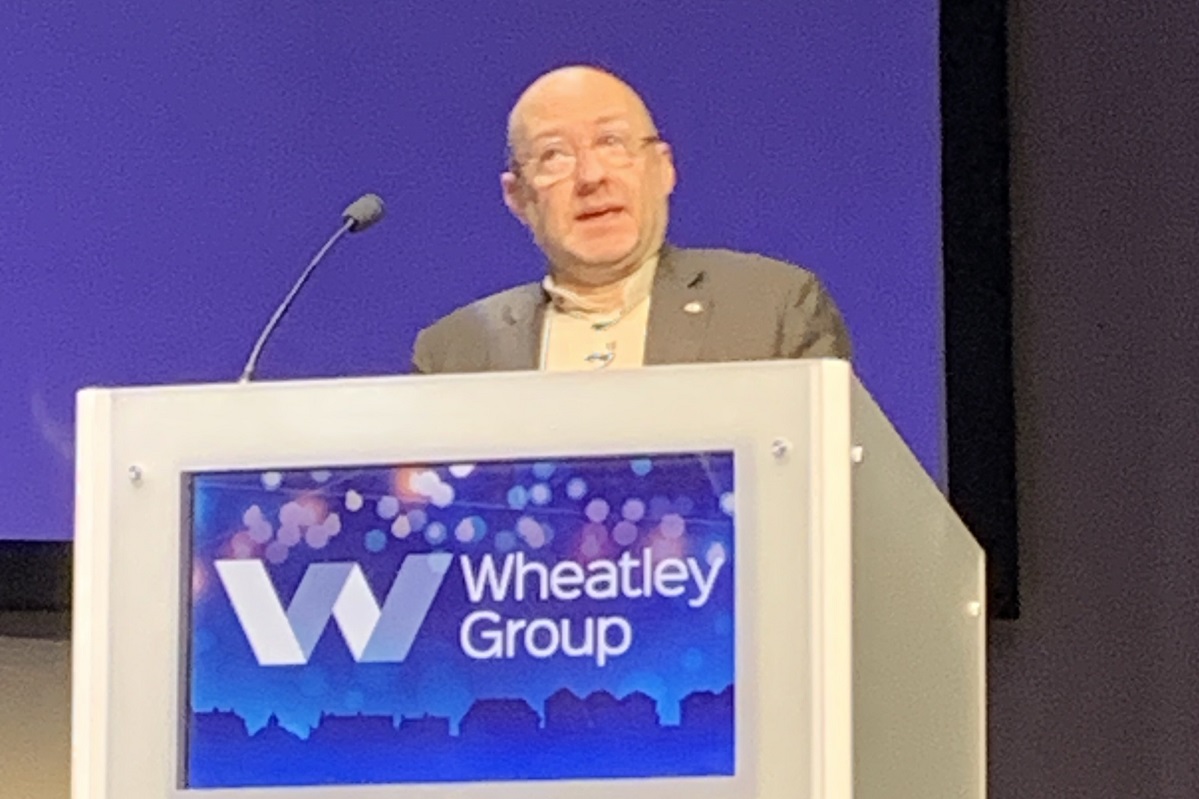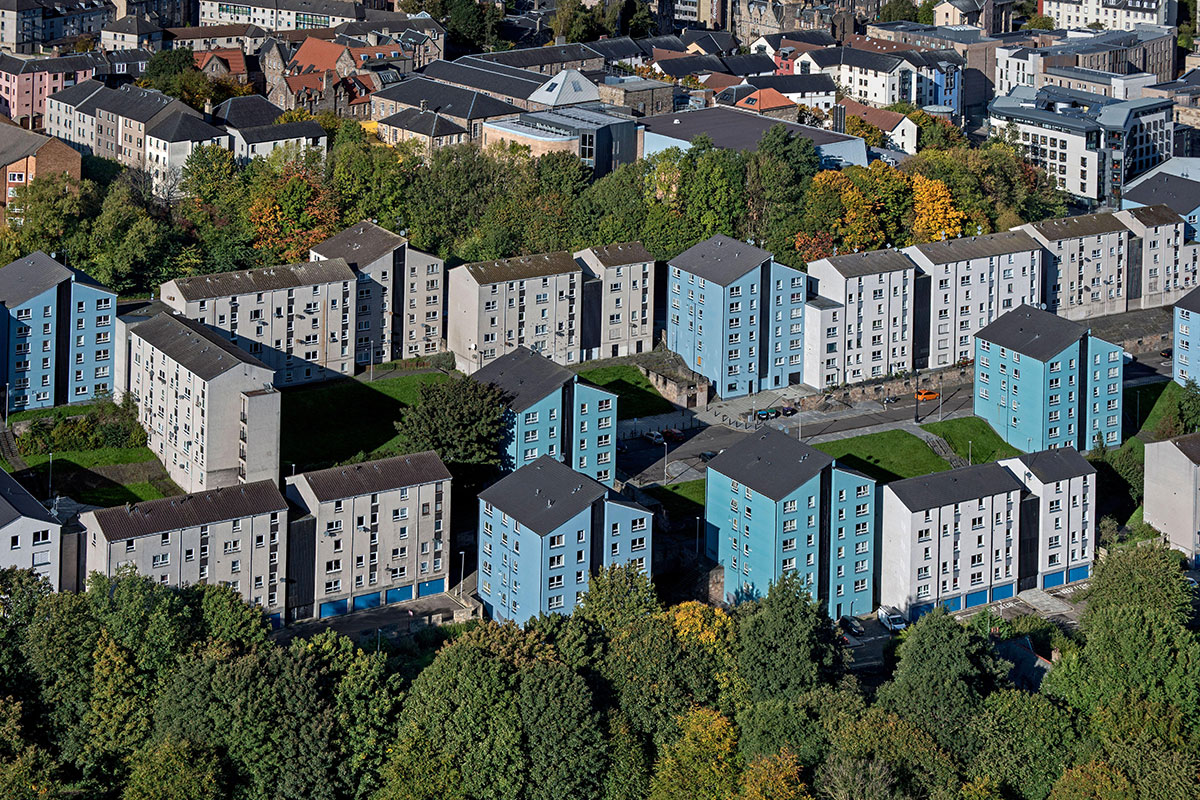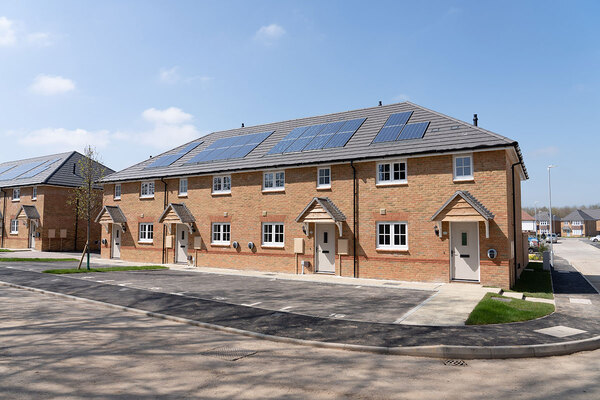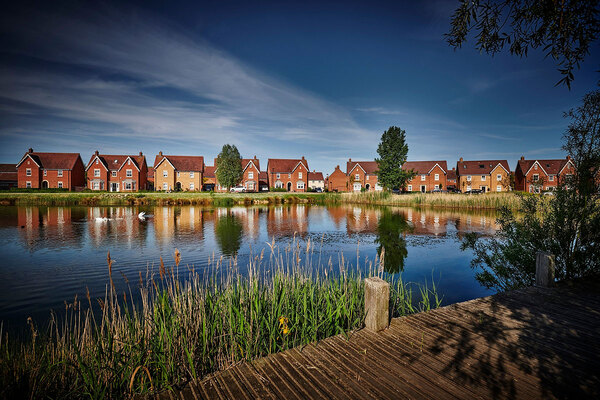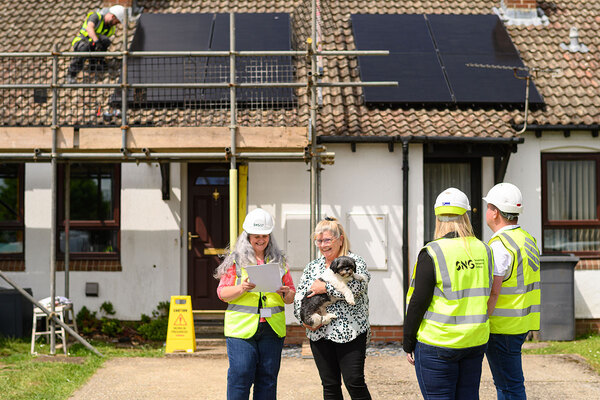You are viewing 1 of your 1 free articles
The Week in Housing: Scottish minister grilled at conference
The social housing sector in Scotland faces financial strain, and took the opportunity to put questions to a minister this week at a conference. Peter Apps recaps and rounds up the rest of the week’s news
Good afternoon.
This week I had the pleasure of a trip up to Glasgow and a day spent at the Chartered Institute of Housing’s Scotland Housing Festival.
Speaking to social landlords in Scotland, it was clear that the feeling of financial tension in the sector is shared across the UK’s borders.
If anything, they may even be more extreme in Scotland. Stretching targets for decarbonisation and soaring build costs (one delegate estimated the going rate at north of £250,000 a unit) come at the same time as the government and the regulator are demanding that rents stay low.
Most councils will increase their rents by 3.9% and housing associations by 5% – nowhere near the rate of inflation for the cost of running a housing business in the current market, which another delegate put at around 20%.
The conference opened to warnings on the front page of The Herald newspaper that the Scottish government may miss its target of 110,000 new social homes by 2032 after it cut its funding levels in the last Budget.
No surprise then that Patrick Harvie, the Scottish Greens MSP who has a ministerial portfolio covering housing, got something of a grilling when he spoke on Tuesday.
Delegates were particularly frustrated that he had included the social housing sector in emergency “rent freeze” legislation in October, before agreeing to remove it after discussions with the sector.
But the period in which caps were expected disrupted investment and development plans, leading to a degree of bad feeling. This came through loud and clear in the audience questions submitted via Slido, the anonymous app, and which flashed up live on the big screen.
When Mr Harvie said neither new build rates nor zero-carbon ambitions should be scaled back, a delegate used the app to write “Easy for you to say Patrick”, which appeared behind him to scattered laughter.
On The Herald headline, he said: “I’m not going to pretend for a moment that the Scottish Budget is everything I would wish it was. The Scottish Budget has not been given an inflation-proof settlement by the UK [government] so we’re not able to pass on the level of investment that we would like to in a whole host of areas.”
Nonetheless, his policy ideas are very interesting. A Passivhaus-style standard for new builds is on the way and new homelessness prevention duties will be introduced in a housing bill later this year, as will longer-term rent control for private landlords. He is also planning to expand the social housing sector through acquisition of private rented housing.
Social landlords have legitimate concerns about how much their balance sheets can really deliver. (A delegate from the Highland Council put the estimated cost of decarbonisation at £304m, money it simply doesn’t have.)
But he is shaking things up and bringing a genuinely fresh approach to housing policy in the UK. Look out for our latest interview with him next week.
Scottish politics is obviously in a state of flux at the moment, and those at the conference who are in the know said that Humza Yousaf would be the preferred candidate to succeed Nicola Sturgeon as first minister.
The view was that he would represent continuity, while his rivals would move the party to the right politically – a position where they might be less inclined to prioritise social housing.
In England, work to address damp and mould in the sector continues with a new advertising campaign that will encourage tenants to report maintenance issues and access the Housing Ombudsman if they are dissatisfied.
Adverts were broadcast across commercial radio and music streaming services such as Spotify. They are also being targeted via social media.
The sector may feel bruised and under pressure from more headlines about disrepair, but the fact is that the earlier complaints are reported, the better it is for everyone. It will be a cheaper fix for the social landlord if done at the earliest possible stage, as well as a better outcome for the resident.
Many eyes are turning to the Treasury, and whether next week’s Budget will include any investment in social housing. A new, funded Decent Homes Programme was high on the agenda for those who have made submissions. Inside Housing will bring you the key details on Wednesday afternoon.
Have a great weekend.
Stat of the week
47%
The percentage of homeless families moved into temporary accommodation who need to find a new school for their children, according to research by homelessness charity Shelter.
Quote of the week
“No woman should feel unsafe, undermined or overlooked in the workplace. Each International Women’s Day we have conversations about these issues, but now we need to see real action to make these experiences a thing of the past.”
Debra Constance, co-founder of Women In Social Housing and its outgoing chair, discusses the group’s research showing that 28% of housing professionals had encountered sexism in the workplace in the past three years.
Say hello: peter.apps@insidehousing.co.uk
Editor’s picks: five must-read stories
Women and homelessness: ‘My belief is that nobody should be homeless’
Chief executive and chair of Homes England accept more than £2,000 worth of hospitality in a year
Liverpool City Council’s failed housing company had unrealistic targets, report finds
Welsh council sees more than 7,000% rise in temporary accommodation costs as total spending doubles
Sign up for our Week in Housing newsletter
Already have an account? Click here to manage your newsletters
